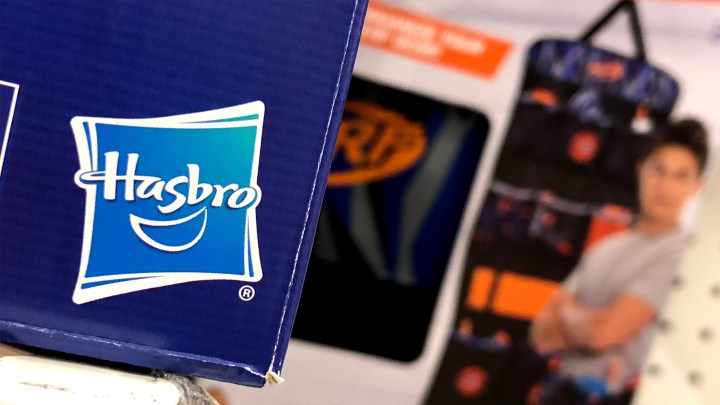
Hasbro’s poor earnings report tells a trade war story
Hasbro’s poor earnings report tells a trade war story

This morning, Hasbro reported earnings for the third quarter that fell far below analysts’ estimates. That news offers a story of the trade war in microcosm: a tale of tariff announcements and delays and the chaos they created at the company … just ahead of its most important season.
The story begins in the summer. In the toy business, summer is when Christmas really comes; when retailers start stocking up with shipments of toys from Hasbro and other manufacturers.
They can buy those toys directly from Hasbro’s warehouses in the U.S. Or they can import the toys from Hasbro’s factories.
“The retailer buys the product from them in China, the retailer puts it on their own ship — you know, this is Walmart, Target, the big guys — and they ship it to the U.S. themselves,” said Linda Bolton Weiser, a managing director at D.A. Davidson.
A lot of retailers use this method — known as FOB, for “free on board” —
because it’s cheaper, Bolton Weiser said. Buyers can take advantage of economies of scale and discounts from suppliers.
But this summer, retailers were staring down a deadline: Sept. 1, when new tariffs were supposed to go into effect on toys and other products coming from China.
The retailers did not want to pay those tariffs and started canceling their shipments from China. They told Hasbro to import the toys itself — and pay the tariffs, too. Hasbro had to scramble to accommodate.
“They had to rush around and get whatever freight on the ocean from China and they had to pay more,” Bolton Weiser said.
Come September, however, the tariffs didn’t go into effect. The Trump administration delayed them until mid-December so they’d miss the holiday shopping season. But that didn’t help Hasbro.
“The toys [had] already been put on the boat,” Bolston Weiser said. “It takes six weeks on the boat. So it’s too late. You can’t switch it back.”
In the end, the tariffs themselves weren’t the problem, Hasbro executives said during the company’s earnings call. But their on-again, off-again nature, and the uncertainty they caused, were.
“Uncertainty is often worse than bad news, because you do assume the worst,” said Gerrick Johnson, an equity research analyst at BMO Capital Markets. “And not knowing how to plan, especially for a very seasonal business, has been very difficult.”
This might not be the end of the bad news for Hasbro. Those tariffs are still slated to go into effect on Dec. 15th. At least, for now.
There’s a lot happening in the world. Through it all, Marketplace is here for you.
You rely on Marketplace to break down the world’s events and tell you how it affects you in a fact-based, approachable way. We rely on your financial support to keep making that possible.
Your donation today powers the independent journalism that you rely on. For just $5/month, you can help sustain Marketplace so we can keep reporting on the things that matter to you.


















